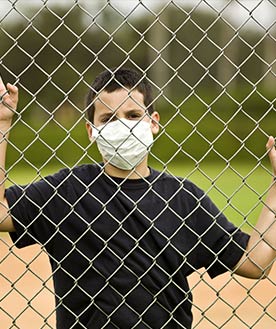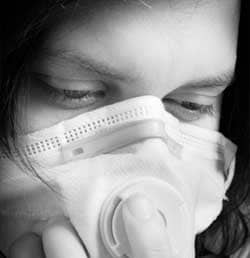We Must Stop Ignoring Indoor Pollution
The recent Maggi controversy had many of us sit up and think about the adulterants we have in our food today. Our milk is mixed with urea powder, the chicken is injected with antibiotics and the glossy fruit is coated with wax…the list is endless.
Never before has what we eat been so impure, and never before have we been so conscious about what we put into our bodies. And the situation is amplified if you are a parent. In my case, I attempted to turn my kitchen as genuinely organic (organic labels are mostly not verified) as I could in order to feed my children healthier food.
But this sense of control over my children’s health was robbed as I began working on the Breathe Clean campaign. Yes, we could control the food we eat but what about the air we breathe? We know that Delhi is the most polluted city in the world. We see the facts and figures on the news regularly but we console ourselves quickly that most of this is outdoors and that we are far removed from this invisible problem.
But our research told us otherwise. Today we breathe more toxins inside our homes and offices than on the street outside. Most of us and the children spend 90 per cent of our time indoors with a sense that we are protected from the problem of pollution. This coupled with the poor air quality outdoors has resulted in 1 out 4 children in the capital with serious respiratory problems.
The magnitude of the problem really hit hard when we spoke to parents Tanvi and Aneesh Passi. Tanvi told us that both her kids were diagnosed with breathing problems within a few months of being born. Their weekends were spent in doctor visits and the nights in nebulizing the children multiple times.
The helplessness set in when she realized that she could not provide her children with clean air to breathe. If her child was allergic to a certain food item, condition or material she would ensure to keep it away from him/her. But she could not control what they inhaled with every breath.
Although I felt encouraged when I met endodontist Tanya Kumar, who has used indoor plants to purify her home and clinic space. Mother of two children, Tanya was quick to realise that wanting change meant creating it herself. She’s the first to call the authorities when she sees the garbage being burnt in her colony and she educates her neighborhood tea stall owners to use eco-friendly cups instead of plastic.
Cleaning the air pollutants around us may not be as easy as replacing an adulterated food item with a pure one but we all need to be the change we want to see. We all must stop ignoring this invisible danger to ensure that we and our children have most primary requirement to live healthy-clean air.




